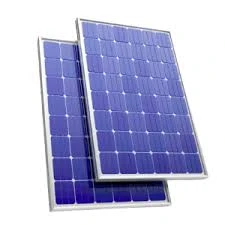solar panel cost
Understanding Solar Panel Costs A Comprehensive Overview
In recent years, solar energy has gained significant traction as a sustainable alternative to fossil fuels. With the increasing awareness of climate change and the push for greener technologies, many homeowners and businesses are considering the installation of solar panels. However, one of the primary concerns in this decision-making process is the cost of solar panels. This article will delve into the various factors influencing solar panel costs, potential savings, and the overall financial implications associated with solar energy.
Initial Costs
The cost of solar panels can vary widely based on several factors including the type of solar technology, the size of the installation, the location, and any government incentives available. As of 2023, the average cost of solar panels in the United States ranges from $2.50 to $3.50 per watt, which translates to approximately $15,000 to $25,000 for an average residential system of 6 kW to 8 kW. These costs include both the solar panels themselves and the installation fees.
Types of Solar Panels
There are primarily three types of solar panels available on the market monocrystalline, polycrystalline, and thin-film. Monocrystalline panels tend to be the most efficient and durable, but they also come with a higher price tag. Polycrystalline panels are generally less expensive but offer lower efficiency and a slightly shorter lifespan. Thin-film panels are the least expensive but require a larger area for installation due to their lower efficiency. The choice of panel type can significantly influence the overall cost of the solar installation.
Installation Costs
While the price of the solar panels themselves is a crucial component of the overall cost, installation fees can also add a substantial amount to the final bill. Installation costs vary depending on the complexity of the installation, the location, and the experience of the contractor. As a rough estimate, homeowners can expect to pay between $0.50 and $1.00 per watt for installation, which can add several thousand dollars to the total project cost.
Additional Expenses
solar panel cost

Aside from the purchase and installation of solar panels, there are additional costs that potential solar buyers should consider. These can include
1. Permitting and Inspection Fees Depending on local regulations, permits may be needed to install solar panels, which can incur extra costs. 2. Inverter Costs Solar panels generate direct current (DC) electricity, which needs to be converted into alternating current (AC) for home use. This requires an inverter, which can cost between $1,000 and $3,000.
3. Battery Storage Some homeowners opt for battery storage systems to store excess energy generated by their solar panels. These systems can range from $5,000 to $15,000, depending on capacity and brand.
4. Maintenance While solar panels require relatively little maintenance, occasional cleaning and inspections should be factored into long-term costs.
Financial Incentives and Savings
Despite the initial costs, solar panels can lead to significant long-term savings. Many states offer tax credits, rebates, and other incentives to encourage solar energy adoption. For instance, the federal solar tax credit allows homeowners to deduct a percentage of the cost of their solar system from their federal taxes. Additionally, many states have their unique incentives, which can further reduce the overall cost.
Furthermore, generating your own electricity can lead to lower energy bills over time. In many areas, homeowners can even sell excess energy back to the grid through net metering agreements, creating an additional stream of income.
Conclusion
While the upfront costs of solar panels may seem daunting, the long-term benefits often outweigh these initial investments. By understanding the various factors influencing solar panel costs, including installation, maintenance, and available incentives, potential buyers can make informed decisions tailored to their financial situation and energy needs. With continued advancements in solar technology and decreasing prices, investing in solar power is increasingly becoming an attractive and sustainable option for energy consumption in both residential and commercial settings. As we move towards a greener future, exploring solar energy can be one of the most impactful steps individuals and businesses can take to contribute to environmental sustainability.
-
Understanding the Advantages of Solar String Inverters for Your Energy SystemNewsApr.29,2025
-
Choosing the Right PV Inverter: A Comprehensive GuideNewsApr.29,2025
-
The Future of Solar Power: Exploring Bifacial Solar PanelsNewsApr.29,2025
-
The Complete Guide to Solar Panels: Efficiency, Cost, And InstallationNewsApr.29,2025
-
The Best Options for Efficiency and Cost-EffectivenessNewsApr.29,2025
-
Harnessing the Power of Off-Grid Solar Inverters for Energy IndependenceNewsApr.29,2025







